64 Shades of Doodles: Discovering the Charm of These Popular Designer Dogs
So, you’re thinking about getting a doodle, huh? Well, let me tell you, these cute little pups are all the rage right now and it’s not hard to see why. Not only are they adorable and cuddly, but they also have some pretty amazing personality traits that make them great companions.
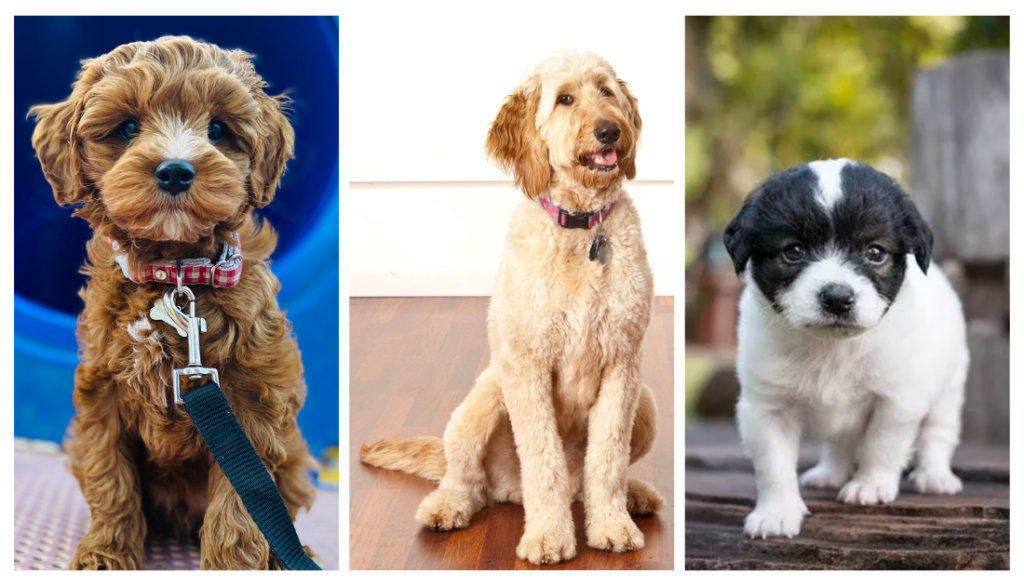
But wait, what exactly are doodles? Well, they’re basically designer dogs created by crossing two different breeds. The most common type of doodle is the Labradoodle, which is a mix of a Labrador Retriever and a Poodle. Other popular doodle breeds include Goldendoodles (Golden Retriever and Poodle), Schnoodles (Schnauzer and Poodle), and Cockapoos (Cocker Spaniel and Poodle).
So Many Doodles To Choose From
One big reason doodles are so popular is because they’re often hypoallergenic. Poodles have low-shedding coats, so many doodles inherited this trait, making them a good choice for people with allergies. Plus, they’re super smart and easy to train, so they’re great for families with kids.
In terms of personality, doodles are known for being friendly, loyal, and affectionate. They’re usually energetic and playful, and love being around their families. They’re also usually good with children, so they make great pets for families with young kids.
So, if you’re considering getting a doodle, make sure to do your research and choose a reputable breeder. And once you bring your new furry friend home, get ready for endless cuddles and tail wags!
Here are 64 Shades of Doodles!
1. Aussiedoodle
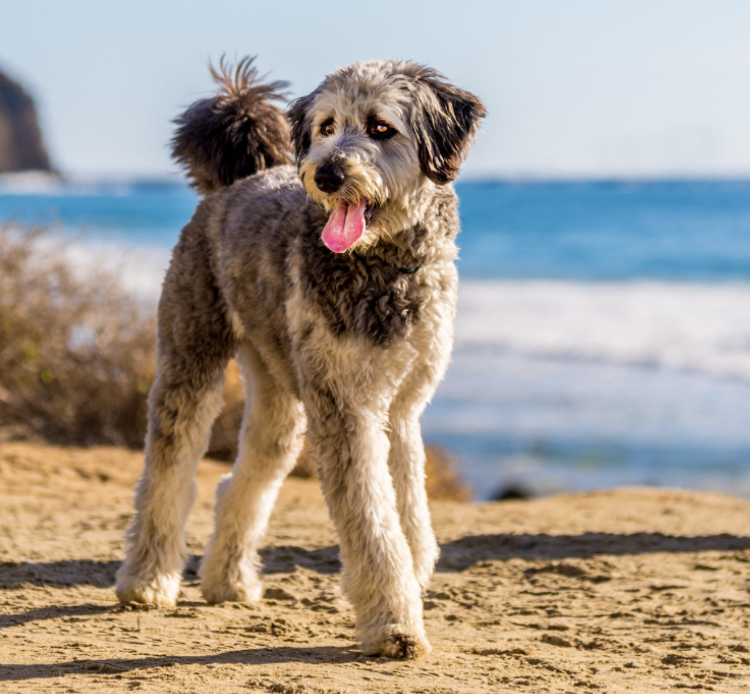
A cross between an Australian Shepherd and a Poodle. Learn More
2. Australian Labradoodle
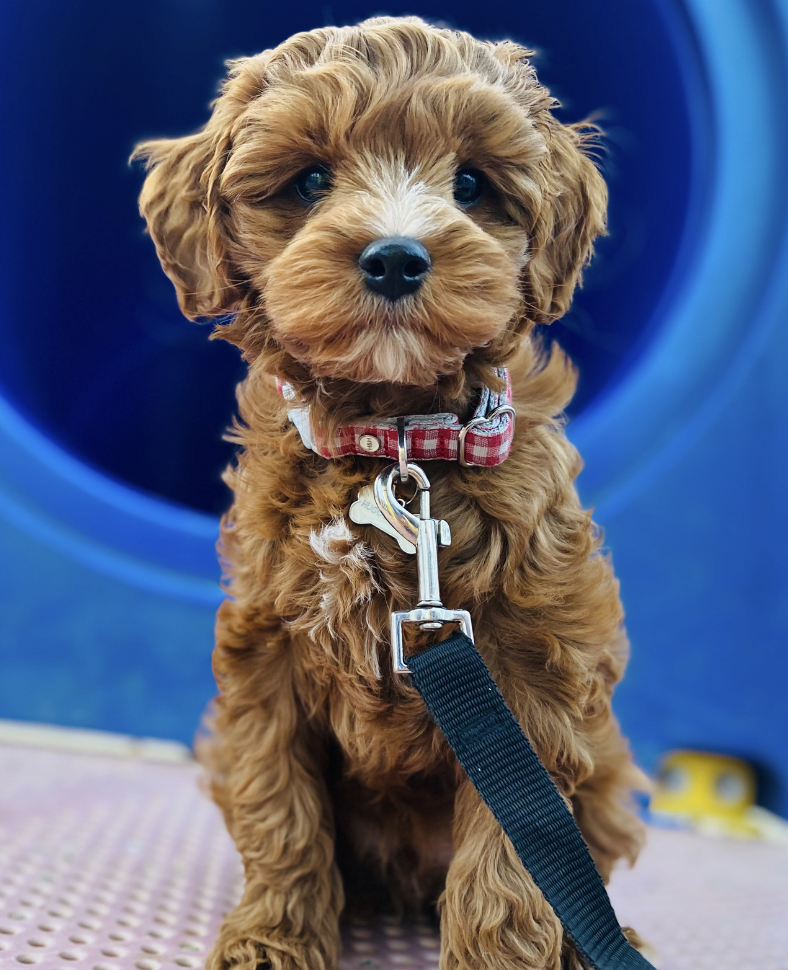
A cross between a poodle, lab. Learn More
3. Aussie Mountain Doodle
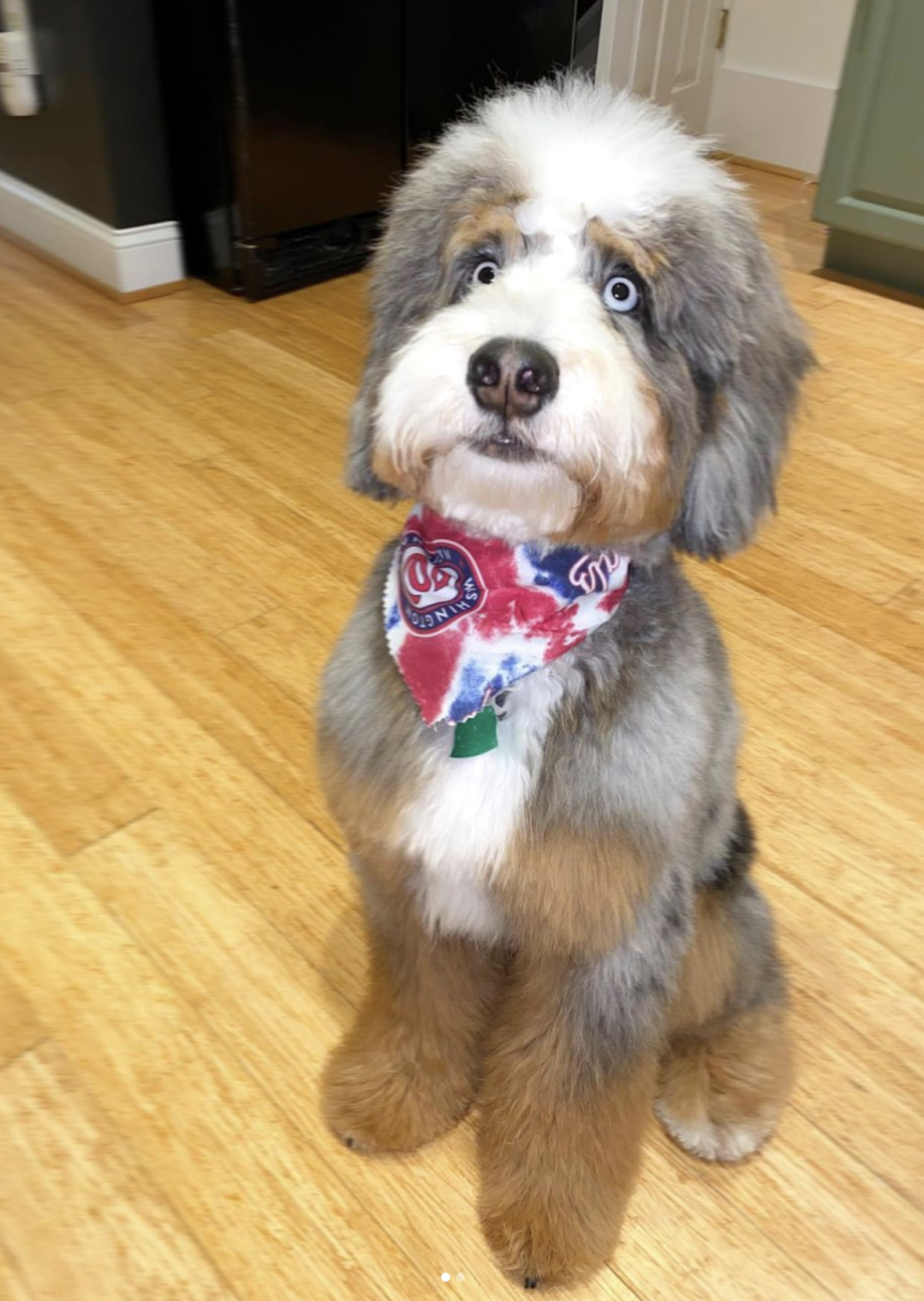
A cross between Australian Shepherd and Bernese Mountain Dog. Learn More!
4. Bassetoodle / Bassetdoodl
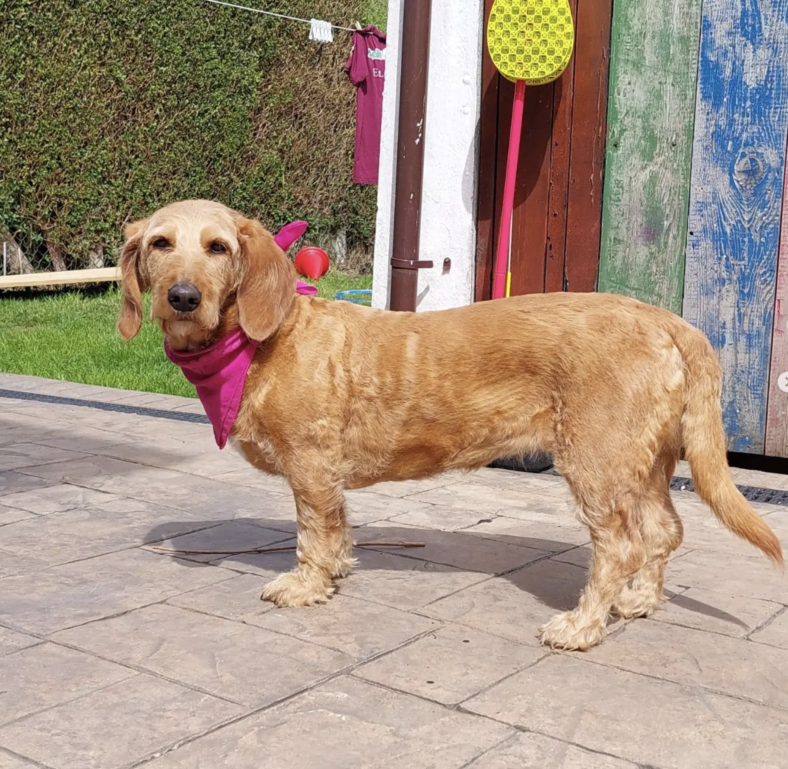
A cross between a Basset Hound and a Poodle. Learn More!
5. Beagledoodle / Beaglepoo
A cross between a Beagle and a Poodle.
6. Bernedoodle
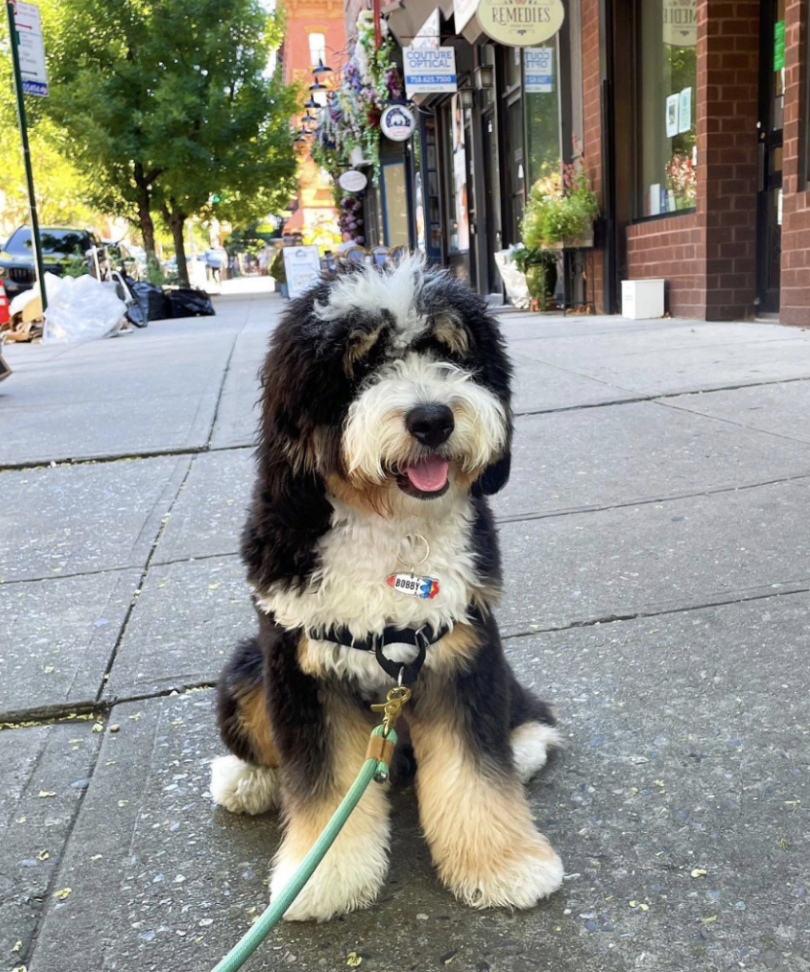
Source: @bobby.bernedoodle
A cross between a Bernese Mountain Dog and a Poodle. Learn More
7. Bolonoodle
A cross between a Bolognese and a Poodle.
8. Bordoodle
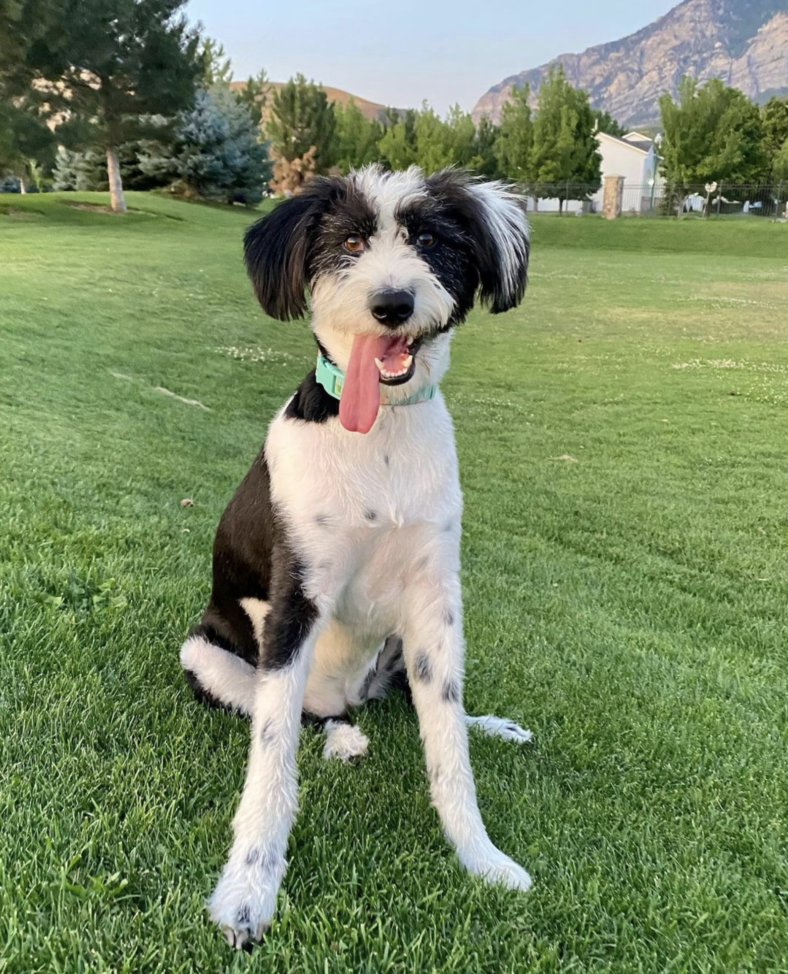
A cross between a Border Collie and a Poodle. Learn More
9. Bossi Poo / Boston Terrier-Poodle
A cross between a Boston Terrier and a Poodle. Learn More
10. Boxerdoodle
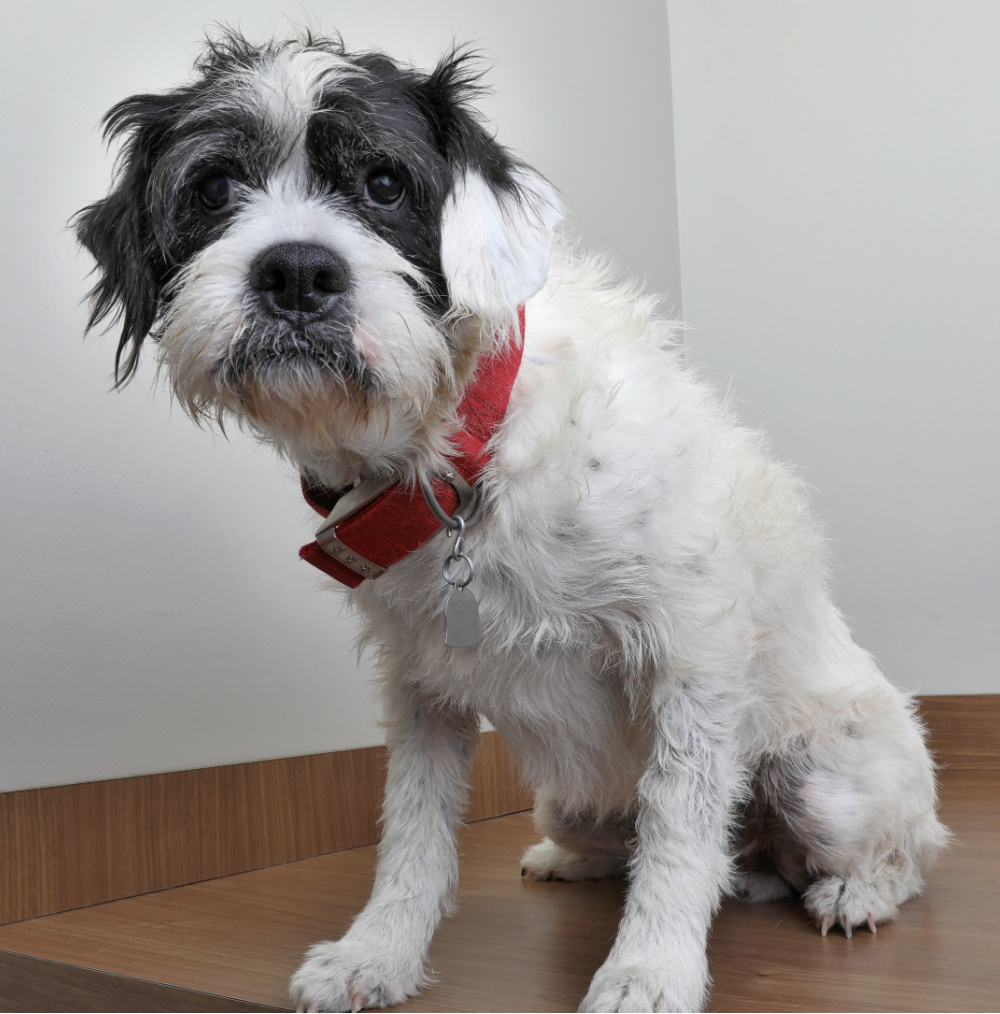
Source: dogtime.com
A cross between a Boxer and a Poodle. Learn more
11. Bridoodle
A cross between a Briard and a Poodle.
12. Bulldoodle
A cross between the Bull Terrier and a Poodle
13. Cairnoodle
A cross between a Cairn Terrier and a Poodle.
14. Corgipoo / Corgidoodle
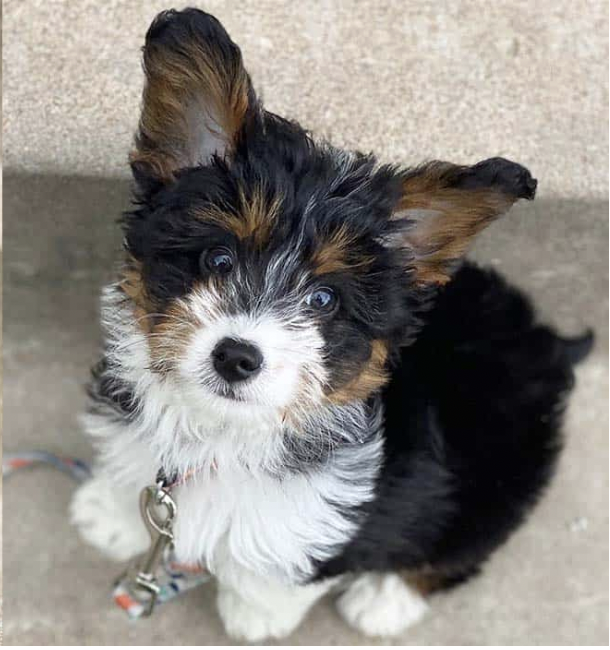
A cross between a Cardigan Welsh Corgi and a Poodle. Learn More
15. Cattledoodle
A cross between a Cattle Dog and a Poodle.
16. Cavapoo / Cavoodle
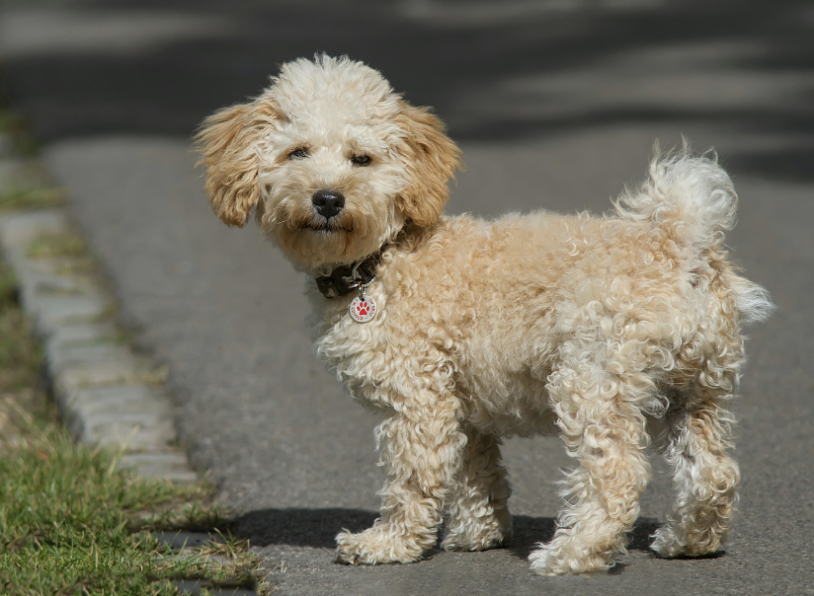
A cross between a Cavalier King Charles Spaniel and a Poodle. Learn More
17. Chihuahuadoodle or ChiPoo
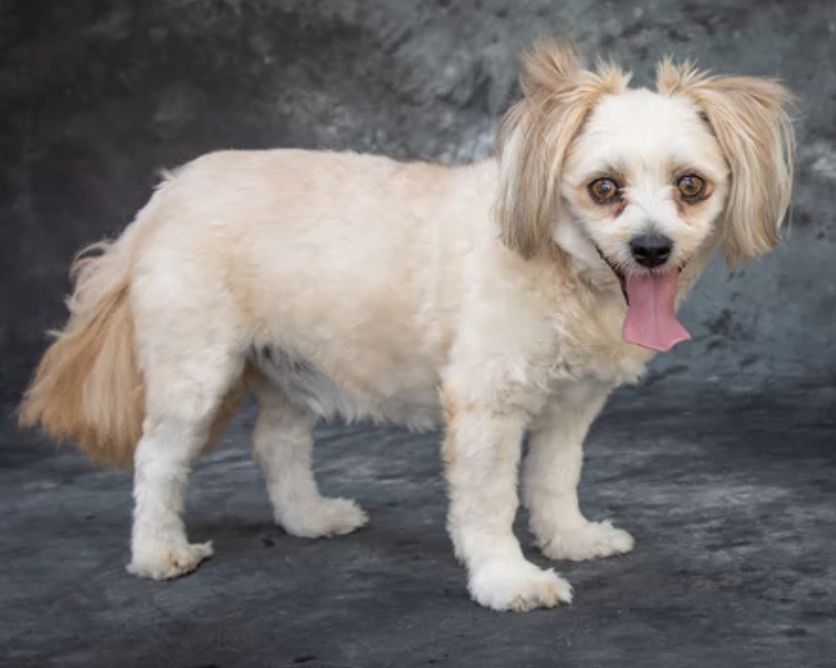
A cross between a Chihuahua and a Poodle. Learn More
18. Chowdoodle / Chowpoo
A cross between a Chow Chow and a Poodle.
19. Cockapoo
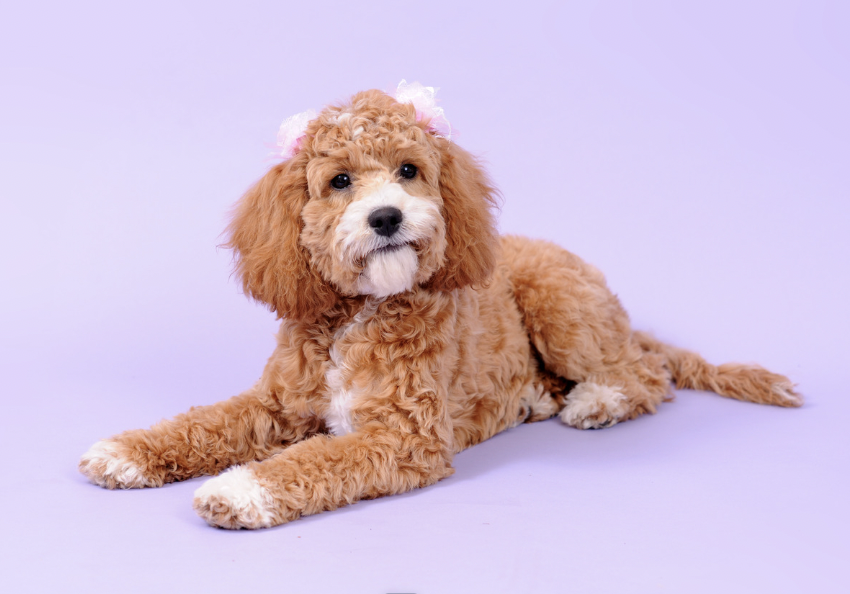
A cross between a Cocker Spaniel and a Poodle. Learn More
20. Colliepoo / Colliedoodle
A cross between a Collie and a Poodle.
21. Cotondoodle / Cotonpoo / Poo-Ton
A cross between a Coton de Tulear and a Poodle.
22. Dalmadoodle
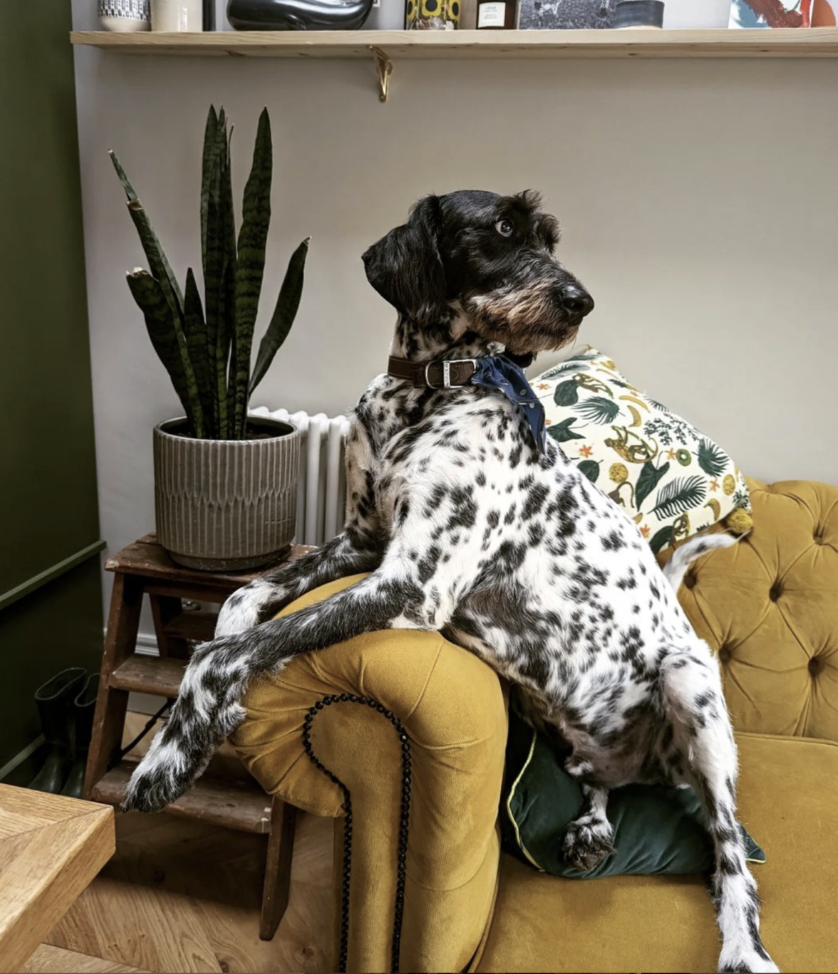
A cross between a Dalmatian and a Poodle. Learn More
23. Doberdoodle
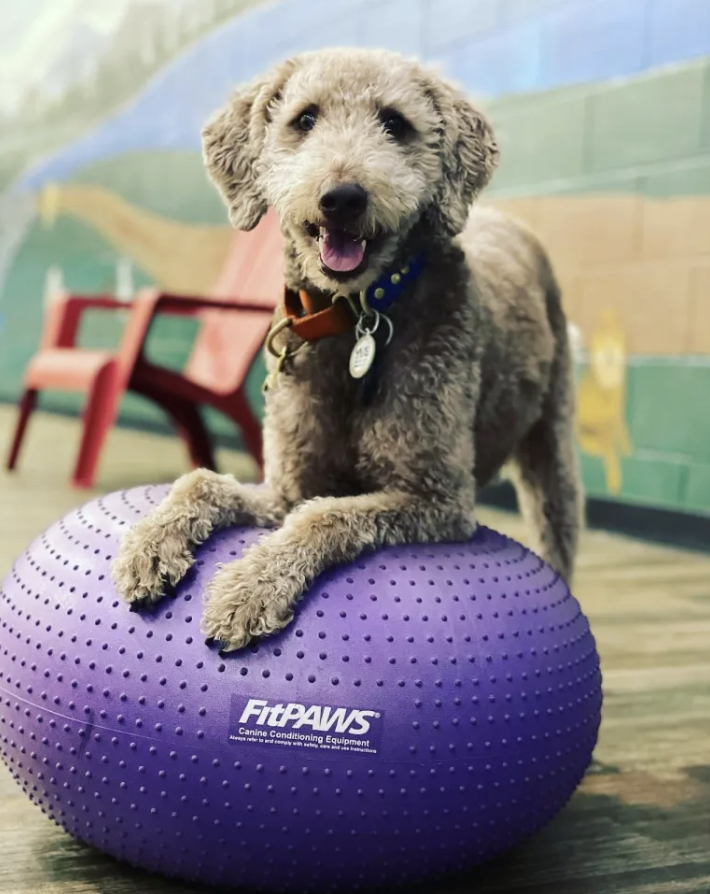
Source: @Wall_And_Oats
A cross between a Doberman and a Poodle. Learn More
24. Doxiepoo / Dachshundoodle

A cross between a Dachshund and a Poodle. Learn More
25. English Boodle
A cross between an English Bullddog and a Poodle.
26. French Bulldoodle

Source: petguide.com
A cross between a French Bulldog and a Poodle.
27. Gerberian Shepsky
A cross between a German Shepherd, a Siberian Husky, and a Poodle.
28. Golden-Aussiedoodle
A cross between a Golden Retriever, an Australian Shepherd, and a Poodle.
29. Goldendoodle:
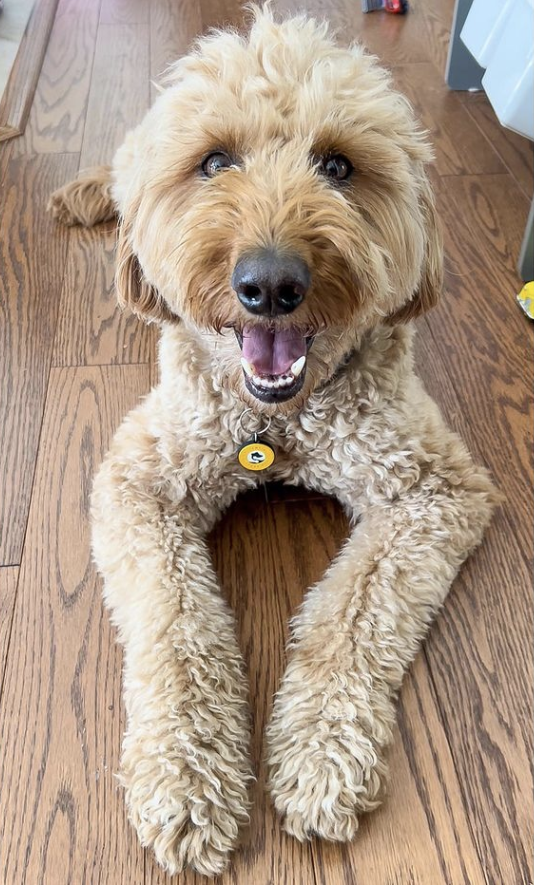
Source: @minidoodlebentley
A cross between a Golden Retriever and a Poodle. Learn More
- Micro Goldendoodles smaller size and lovable personality.
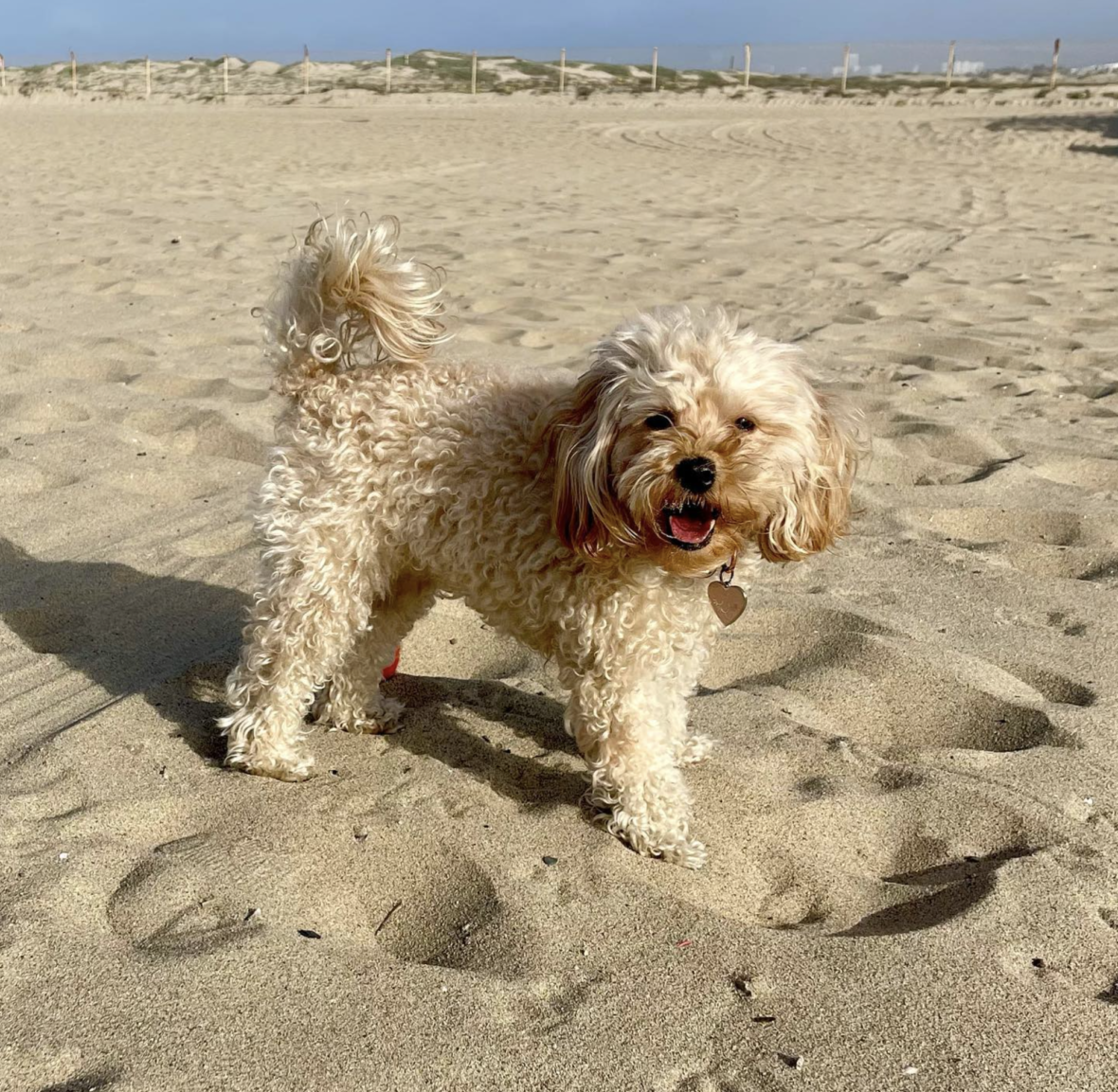
smaller size and with big personality. Learn More
30. Great Danoodle
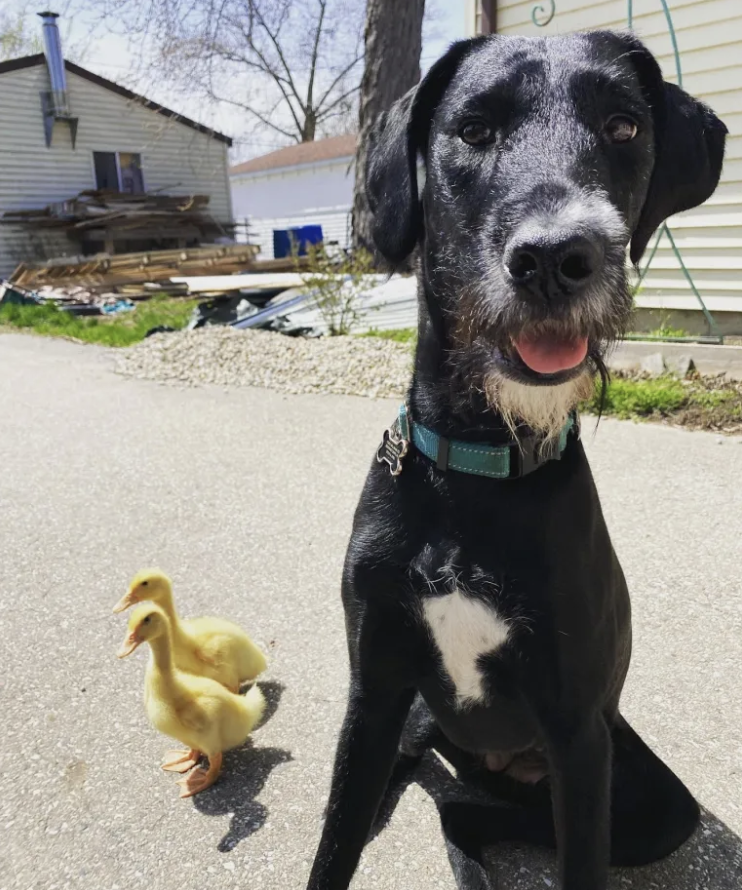
Source: @The.Cheesiest.Danoodle
A cross between a Great Dane and a Poodle. Learn More
31. Havapoo
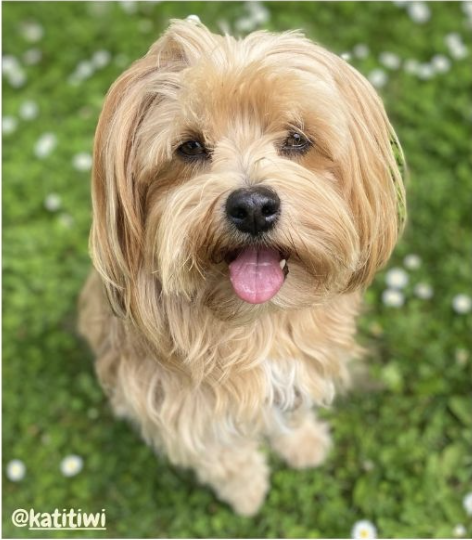
A cross between a Havanese and a Poodle. Learn More!
32. Irish Doodle
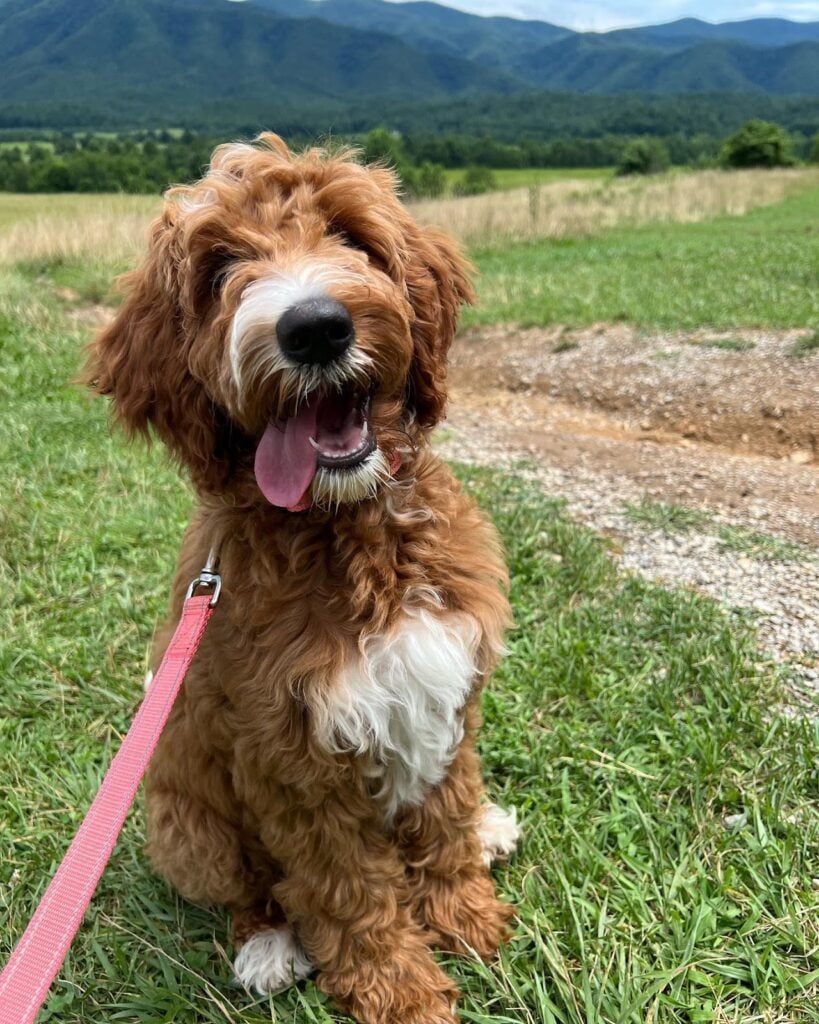
A cross between an Irish Setter and a Poodle. Learn More!
33. Irish Wolfadoodles
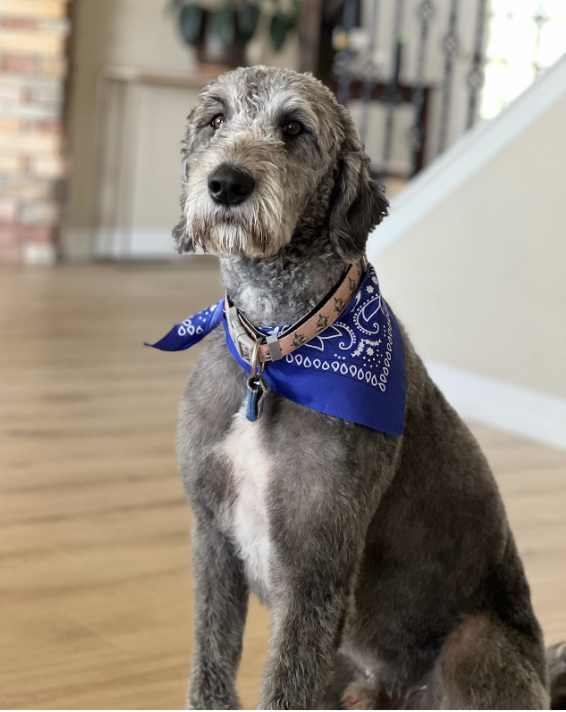
A cross between an Irish Wolfhound and a Poodle. Learn More
34. Jackapoo
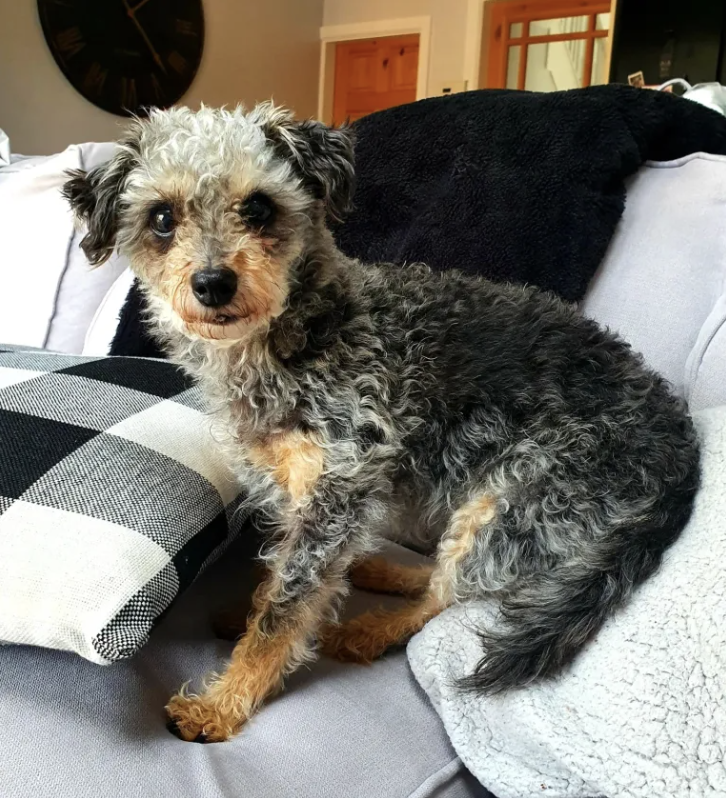
Source: @JessicaMayne
A cross between a Jack Russell Terrier and a Poodle. Learn More!
35. Labradoodle
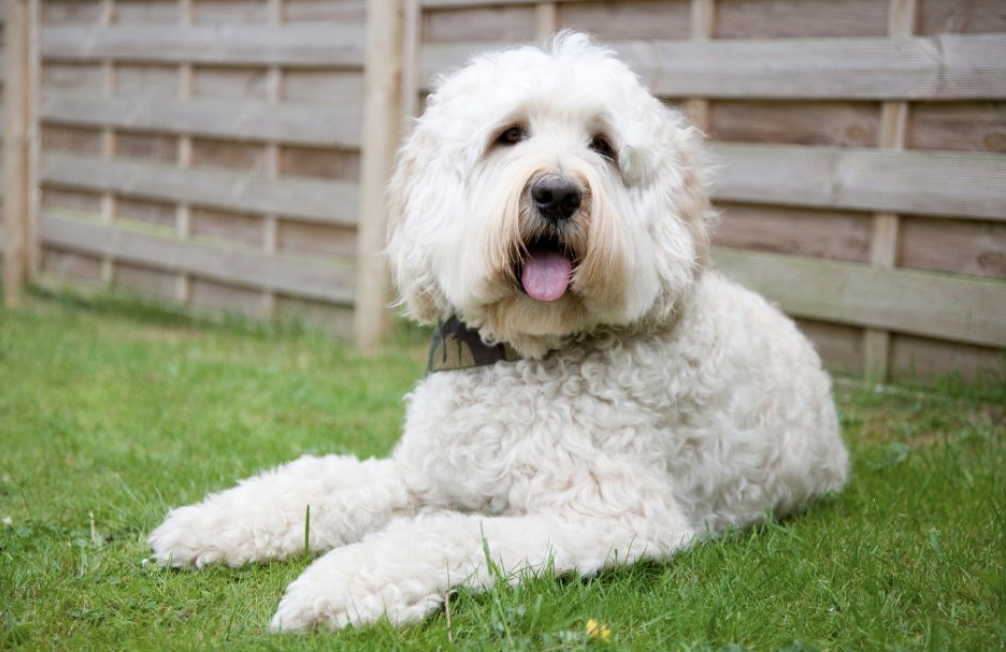
A cross between a Labrador Retriever and a Poodle. Learn More!
36. Lhasapoo
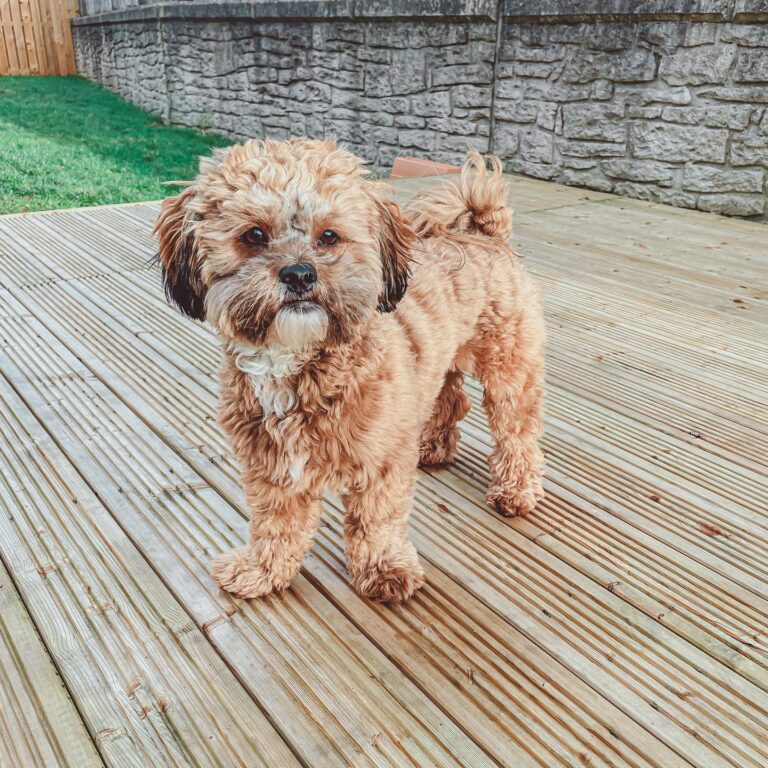
A cross between a Lhasa Apso and a Poodle. Learn More!
37. Maltipoo

Source: @MarvellousMaeveTheMaltipoo
A cross between a Maltese and a Poodle. Learn More!
38. Mastidoodle/ Mastipoo / Mastiffpoo / Mastiffdoodle
A cross between an English Mastiff and a Poodle.
39. Newfiedoodle / Newfypoo
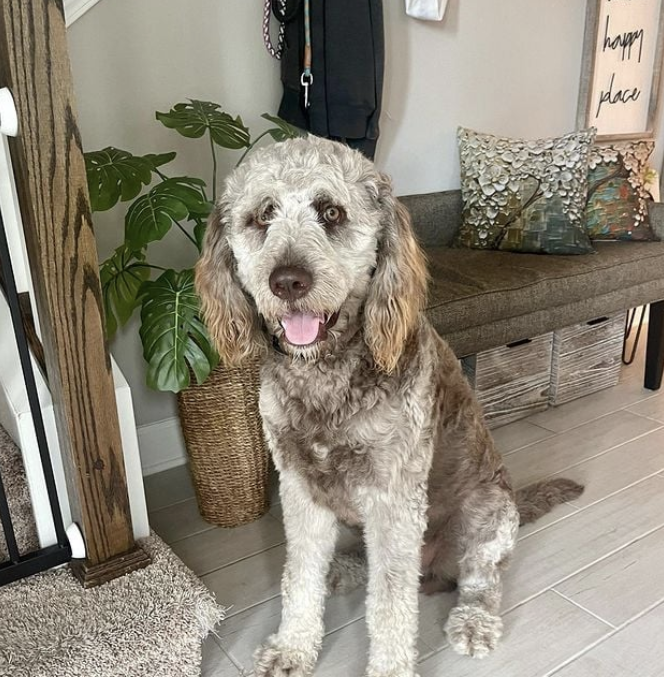
Source: @Vino.The.Newfiepoo
A cross between a Newfoundland and a Poodle. Learn More!
40. Papipoo
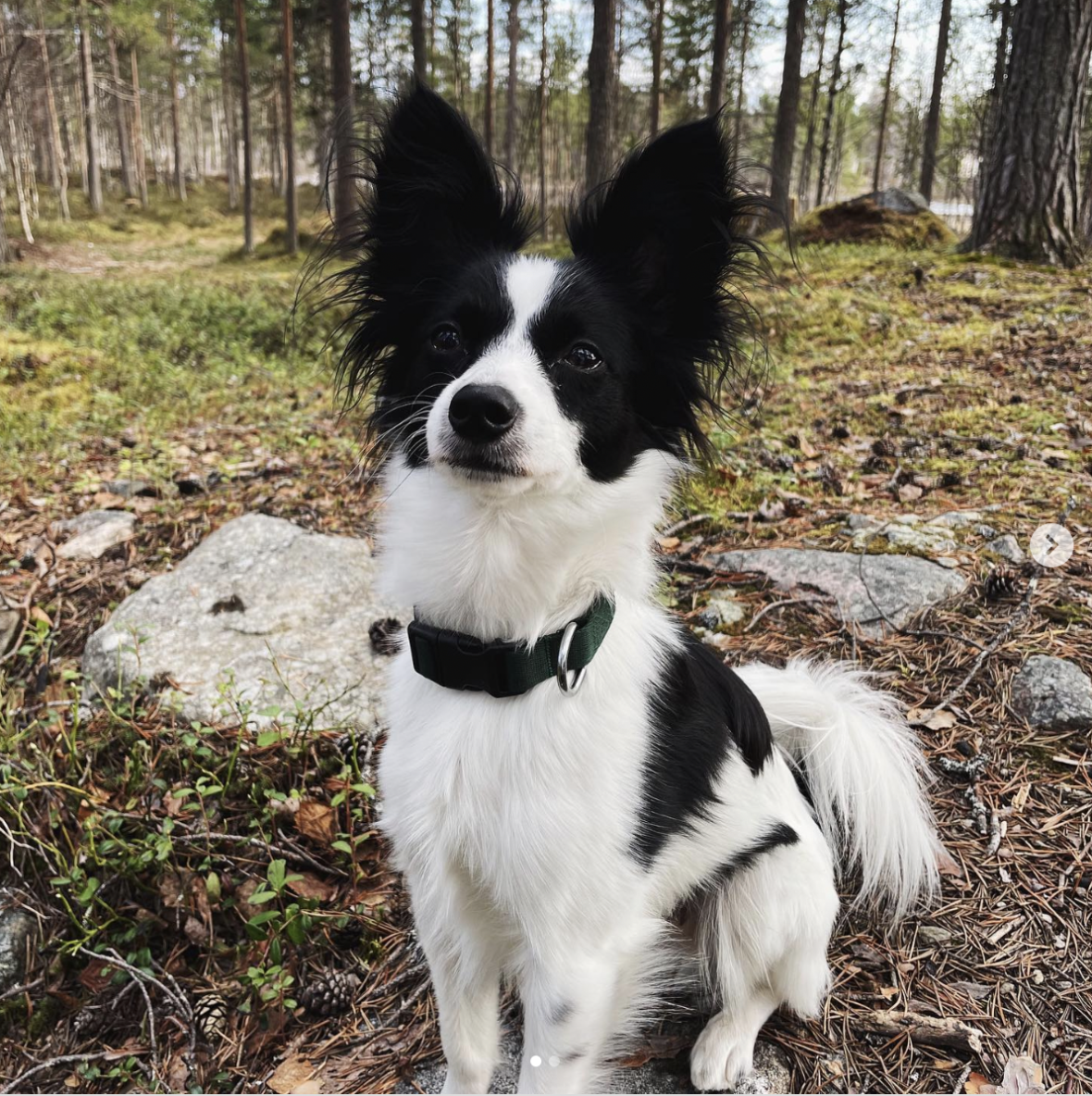
A cross between a Papillon and a Poodle. Learn More!
41. Patterpoo
A cross between a Patterdale Terrier and a Poodle.
42. Peekapoo
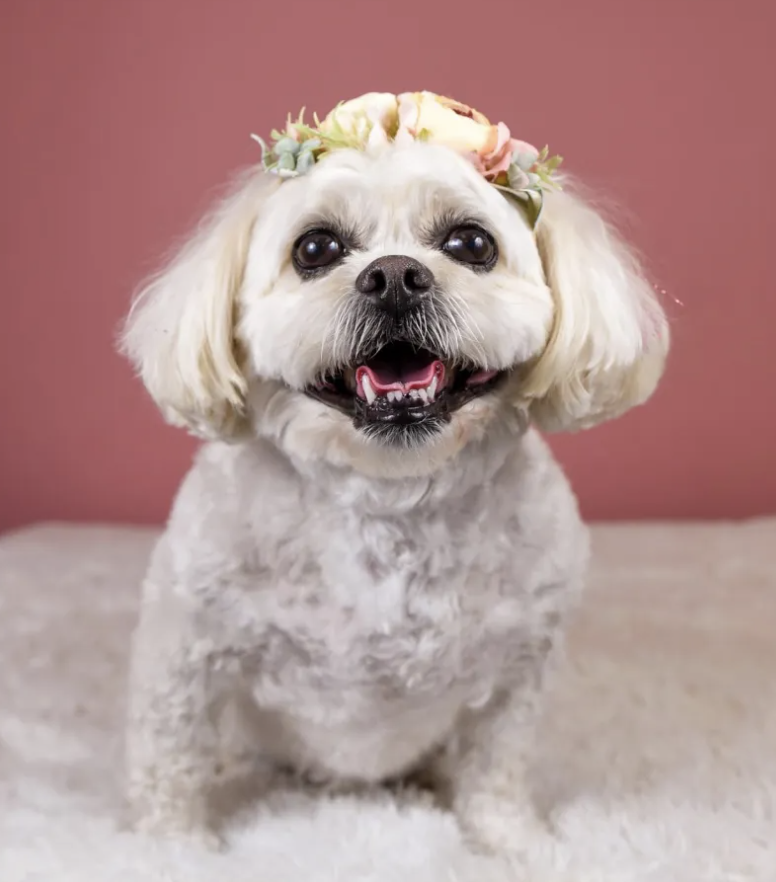
Source: @TheGorrieZoo
A cross between a Pekingese and a Poodle. Learn More!
43. Pitdoodle (Pit Boodle)
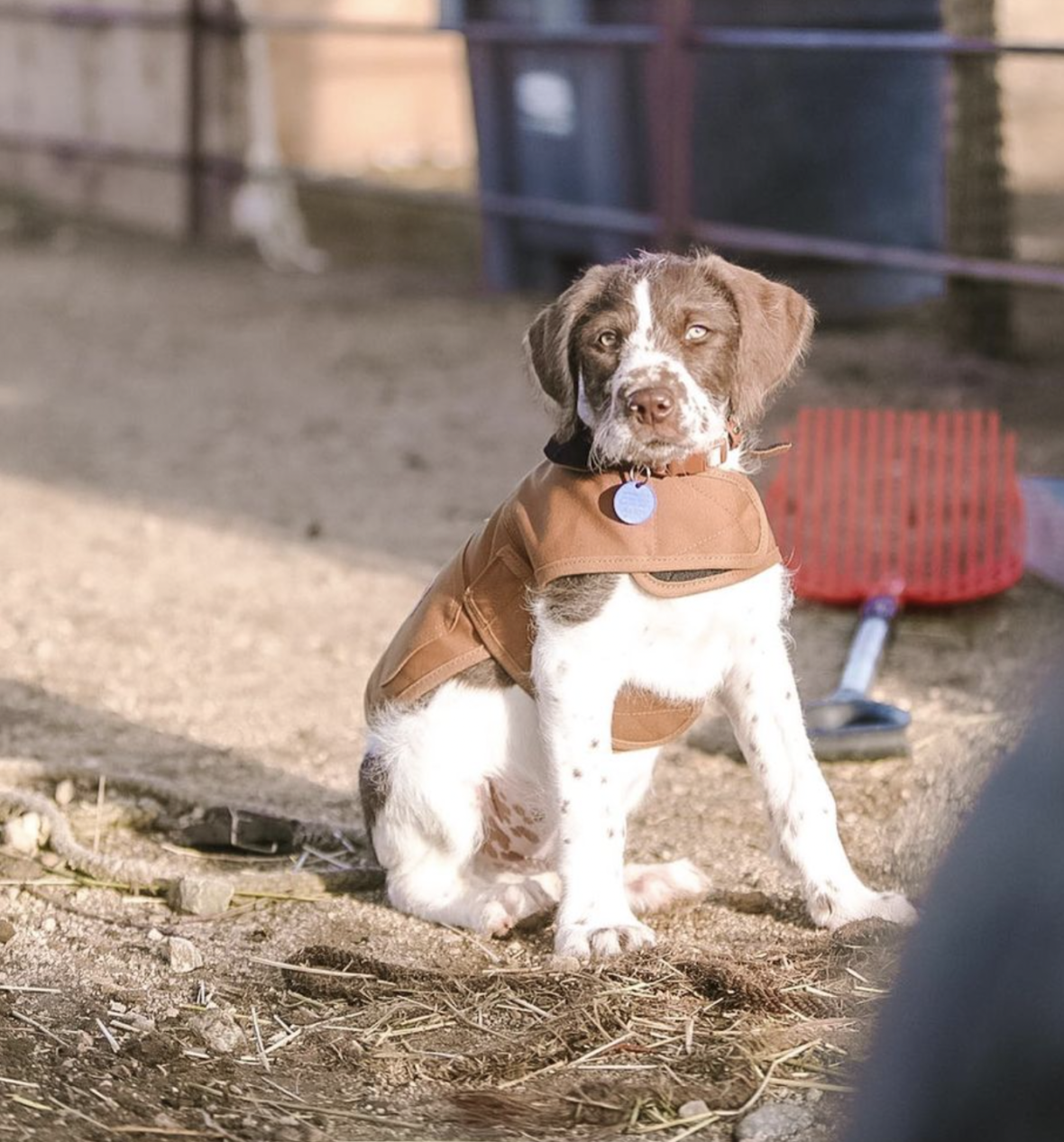
A cross between a Pitbull and a Poodle. Learn more
44. Pomapoo
A cross between a Pomeranian and a Poodle. Learn More!
45. Poochon / Bichpoo / Bichon Poodle
A cross between a Bichon Frise and a Poodle. Learn More!
46. Pootalian
A cross between an Italian Greyhound and a Poodle.
47. Pugapoo
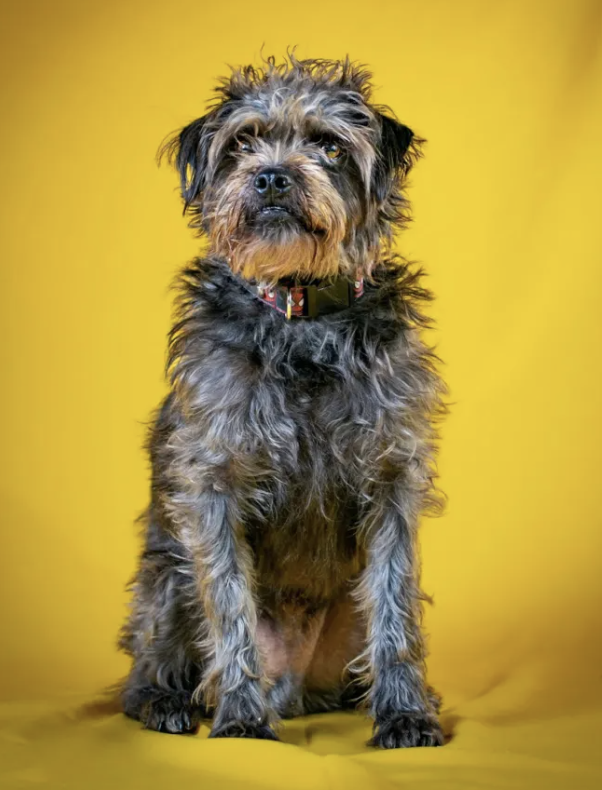
Source: @SeymourDiera_Pugapoo
A cross between a Pug and a Poodle. Learn More!
48. Pyredoodle
A cross between Great Pyrenees and Standard Poodle. Learn More!
49. Rottie Poo
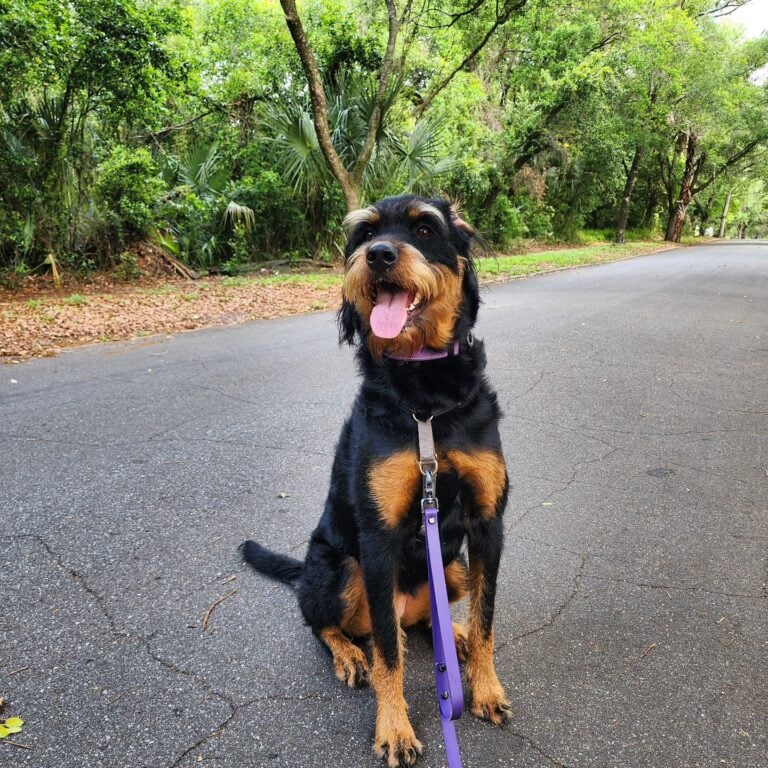
A cross between a Rottweiler and Poodle. Learn More!
50. Saint Berdoodle

A cross between a Saint Bernard and a Poodle. Learn More!
51. Schnoodle

A cross between a Schnauzer and a Poodle. Learn More!
52. Shar-Poo
A cross between a Shar Pei and a Poodle.
53. Shepadoodle

Source: @DillonTheShepadoodle
A cross between a German Shepherd and a Poodle. Learn More!
54. Sheepadoodle
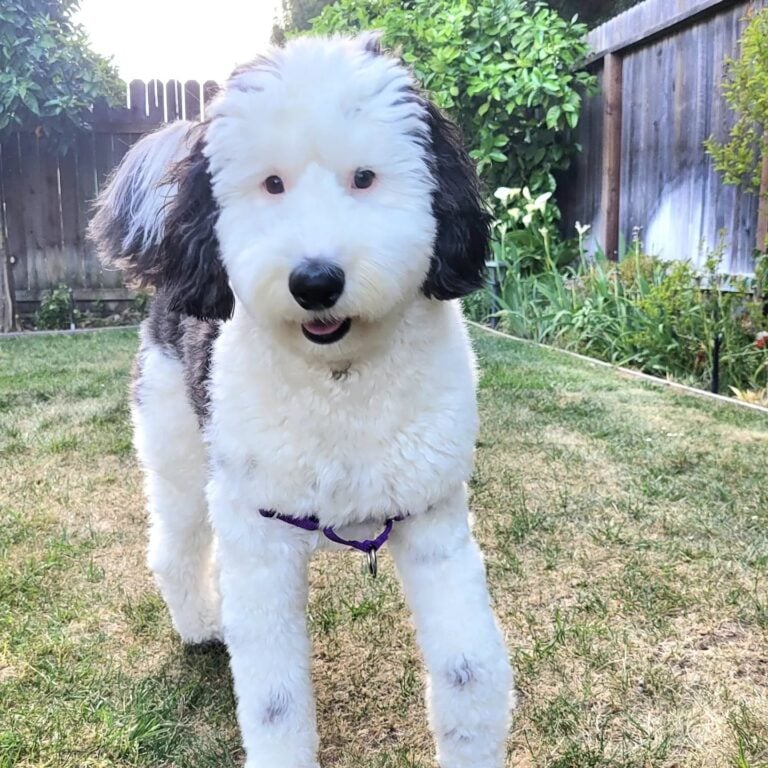
A cross between a Sheepdog and a poodle. Learn More!
55. Shih Poo
A cross between a Shih Tzu and a Poodle. Learn More!
56. Springerdoodle
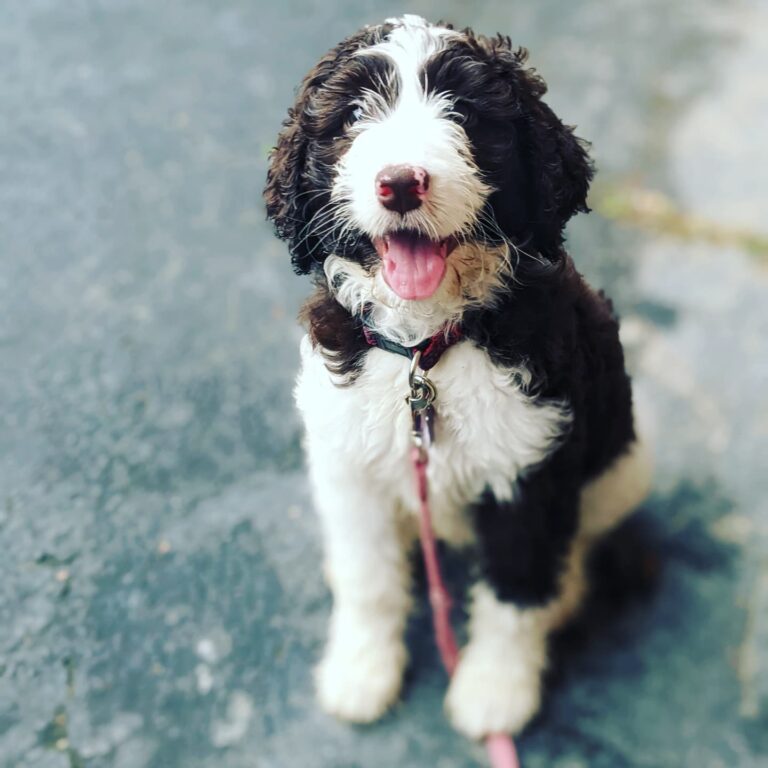
A cross between an English Toy Spaniel and a Poodle. Learn More!
57. Sproodle
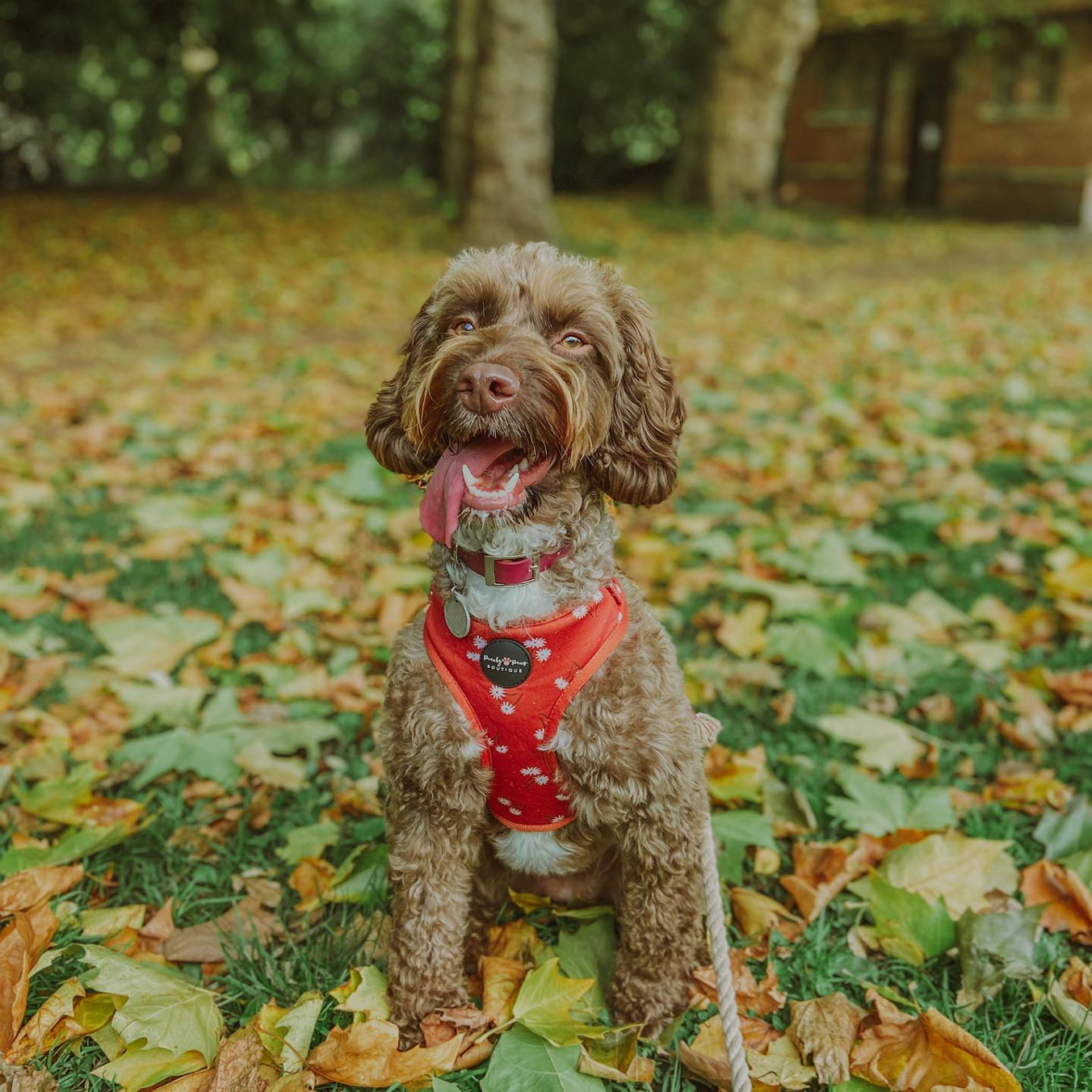
A cross between a Springer Spaniel and a Poodle. Learn More!
58. Staffordshire Bulldoodle
A cross between a Staffordshire Bull Terrier and a Poodle.
59. Terripoo
A cross between the Australian Terrier and poodle
60. Vizsladoodle
A cross between a Vizsla and a Poodle.
61. Weimardoodle
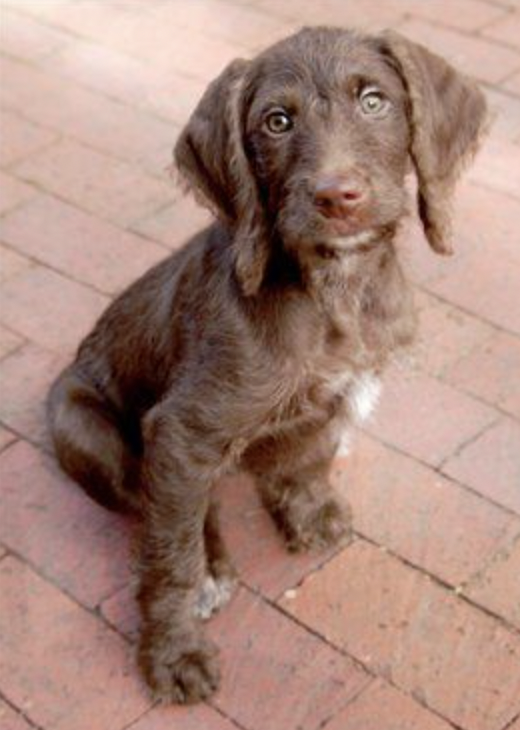
A cross between a Weimaraner and a Poodle. Learn More!
62. Westiepoo

A cross between West Highland White Terrier and Poodle. Learn More!
63. Whoodle
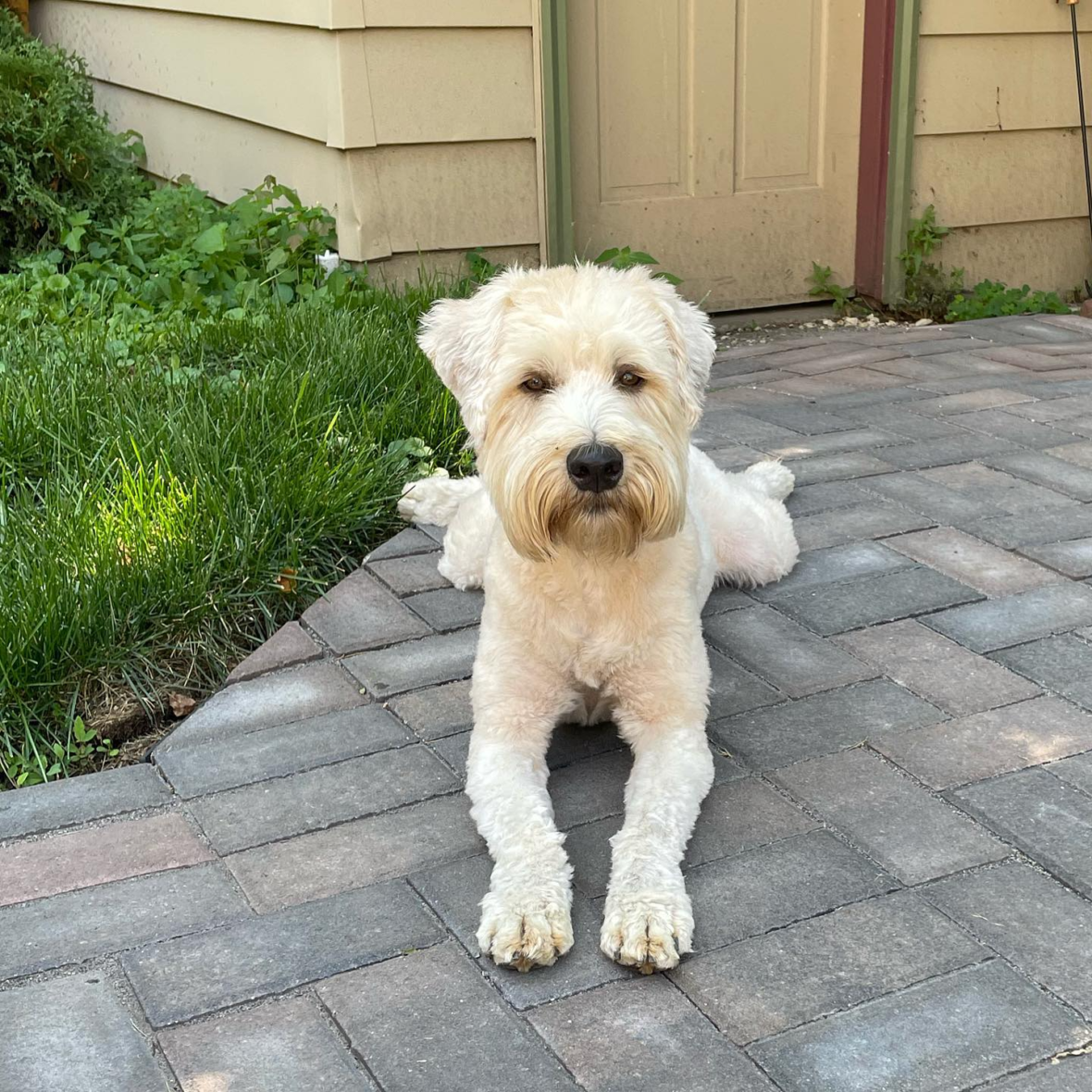
A cross between a Wheaten Terrier and a Poodle. Learn More!
64. Yorkipoo
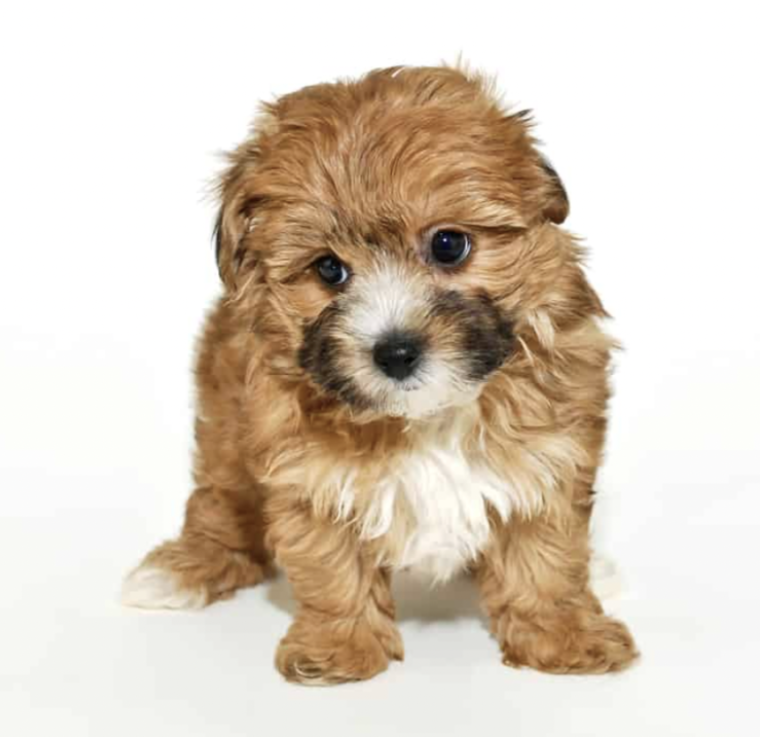
A cross between a Yorkshire Terrier and a Poodle. Learn More!
FAQ
What are doodles?
Doodles are designer dogs created by crossing two different breeds, typically a Poodle with another breed.
What are some popular types of doodles?
Some popular types of doodles include Labradoodles (Labrador Retriever and Poodle), Goldendoodles (Golden Retriever and Poodle), Schnoodles (Schnauzer and Poodle), and Cockapoos (Cocker Spaniel and Poodle).
Why are doodles so popular?
Doodles are popular because they are often hypoallergenic due to their low-shedding coats, making them a good choice for people with allergies. They are also known for being smart, easy to train, friendly, loyal, and affectionate.
Are doodles good with kids?
Yes, doodles are usually good with children, making them great pets for families with young kids. They are known for being friendly and playful.
What are the personality traits of doodles?
Doodles are known for being friendly, loyal, affectionate, energetic, and playful. They enjoy being around their families and are usually good with children.
What should I consider when choosing a doodle?
When choosing a doodle, it’s important to do your research and choose a reputable breeder. Consider the size, temperament, exercise needs, and grooming requirements of the specific breed mix you’re interested in.
Are doodles hypoallergenic?
Many doodles are hypoallergenic due to their low-shedding coats, which can be inherited from their Poodle parent. However, it’s important to note that not all doodles are hypoallergenic, and individual allergies may vary.
How should I care for a doodle’s coat?
Doodle’s coats require regular grooming, including brushing to prevent matting and regular trips to a professional groomer for haircuts. Some doodles may also require additional coat care depending on their specific coat type.
Are doodles high-energy dogs?
Yes, doodles are typically energetic dogs that require regular exercise and mental stimulation. They enjoy playtime and outdoor activities, so it’s important to provide them with regular opportunities for exercise and play.
Are there any health concerns associated with doodles?
Like any other breed, doodles may be prone to certain health issues. It’s important to be aware of potential health concerns associated with the specific breeds in the doodle mix and to provide regular veterinary care, including vaccinations, preventive care, and regular check-ups.
How big do doodles typically get?
The size of a doodle can vary depending on the specific breed mix and genetics. Some doodles may be small or medium-sized, while others may be larger. It’s important to research and consider the size of the specific breed mix when choosing a doodle.
Are doodles easy to train?
Doodles are generally known for being smart and easy to train, especially when it comes to basic obedience and house training. However, individual training experiences may vary, and consistent training and positive reinforcement techniques are important for successful training.
Can doodles live in apartments or smaller living spaces?
Some doodles may adapt well to apartment or smaller living spaces, while others may require more space to move around and exercise. It’s important to consider the size, energy level, and exercise needs of the specific breed mix when choosing a doodle for apartment living.
Do doodles have any specific exercise requirements?
Doodles are typically energetic dogs that require regular exercise and mental stimulation. Daily walks, playtime, and outdoor activities are important for their physical and mental well-being. The specific exercise requirements may vary depending on the size, age, and activity level of the doodle, as well as the specific breed mix. It’s important to provide regular opportunities for exercise and play to keep your doodle happy and healthy.
Can I adopt a doodle from a rescue or shelter?
Yes, there are doodles available for adoption from rescues and shelters. Adopting a doodle from a rescue or shelter can be a great way to give a loving home to a dog in need. However, it’s important to thoroughly research and assess the dog’s background, health, and temperament before adopting.
What are some common grooming needs for different types of doodles?
Different types of doodles may have varying grooming needs depending on their coat type. For example, Labradoodles and Goldendoodles with wavy or curly coats may require regular brushing to prevent matting and regular haircuts to keep their coats in good condition. Schnoodles with wiry coats may require stripping or plucking of dead hairs. Cockapoos with straight coats may require less grooming maintenance. It’s important to research and understand the specific coat type of the doodle breed mix you’re interested in and provide appropriate grooming care.
How long do doodles typically live?
The average lifespan of a doodle can vary depending on factors such as genetics, overall health care, and lifestyle. On average, doodles can live for 10-15 years, though some may live longer with proper care.
Can doodles be left alone for long periods of time?
Doodles, like most dogs, thrive on human companionship and generally do not do well when left alone for long periods of time. They may become anxious, bored, or destructive when left alone for extended periods. It’s important to provide regular social interaction, exercise, and mental stimulation for your doodle, and consider options such as doggy daycare or hiring a pet sitter if you need to be away for an extended period of time.
Are there any specific training techniques that work well for doodles?
Positive reinforcement training techniques, such as using treats, praise, and rewards, tend to work well with doodles. They are generally responsive to training and eager to please. Consistent and patient training methods, along with plenty of positive reinforcement, can help your doodle become a well-behaved and obedient companion.
Are doodles good for first-time dog owners?
Doodles can be a good choice for first-time dog owners, as they are generally known for their friendly nature, trainability, and adaptability. However, it’s important for first-time dog owners to research and understand the specific breed mix they are interested in, as well as be prepared for the responsibilities of dog ownership, including training, grooming, exercise, and regular veterinary care.
Are doodles good with other pets?
Doodles can generally get along well with other pets, including dogs and cats, when properly socialized and introduced. However, as with any breed, individual temperament and behavior can vary, and proper introductions and supervision may be necessary to ensure peaceful coexistence among different pets.
How much do doodles typically cost?
The cost of a doodle can vary depending on factors such as the breed mix, size, coat type, pedigree, and location of the breeder. Doodles can range from several hundred dollars to several thousand dollars. It’s important to research and choose a reputable breeder or rescue organization, and be prepared for ongoing expenses such as food, grooming, vaccinations, and regular veterinary care.
Can I breed my doodle?
Breeding doodles should be approached with careful consideration and responsibility. Breeding should only be done by experienced and reputable breeders who follow ethical breeding practices and prioritize the health and welfare of the dogs. It’s important to understand the genetics, health screening, and ethical considerations involved in responsible breeding. Breeding without proper knowledge and experience can contribute to health issues, temperament problems, and overpopulation. If you’re considering breeding your doodle, it’s crucial to do thorough research, seek guidance from reputable breeders, and ensure that you are well-prepared for the responsibilities and commitment involved in responsible breeding.
Are there any specific health concerns associated with doodles?
Doodles are generally considered to be healthy dogs, but like all breeds, they can be prone to certain health issues. Some potential health concerns that doodles may be predisposed to include hip dysplasia, allergies, ear infections, and eye issues. Regular veterinary care, proper nutrition, exercise, and grooming can help minimize the risk of health issues in doodles.
What are some common coat colors and patterns in doodles?
Doodles can come in a wide variety of coat colors and patterns, depending on their breed mix. Some common coat colors in doodles include cream, gold, apricot, black, chocolate, parti-color (white and another color), and merle (a marbled pattern with different colors). However, it’s important to note that coat colors and patterns can vary greatly even within the same breed, and not all doodles will have the same coat color or pattern.
Are there different sizes of doodles?
Yes, doodles can come in different sizes, depending on their breed mix. There are standard-sized doodles, which can range from medium to large-sized dogs, typically weighing between 40-70 pounds and standing around 21-24 inches at the shoulder. There are also mini or miniature doodles, which are smaller, typically weighing between 15-45 pounds and standing around 14-20 inches at the shoulder. Additionally, there are toy or teacup doodles, which are even smaller, typically weighing less than 15 pounds and standing around 10-14 inches at the shoulder. It’s important to research and understand the specific size of the doodle breed mix you’re interested in and ensure that it is suitable for your lifestyle and living situation.
Do doodles require a lot of exercise?
The exercise needs of a doodle can vary depending on factors such as age, size, and activity level. Generally, doodles are active dogs that require regular exercise to stay healthy and happy. This may include daily walks, playtime, and mental stimulation. Doodles with higher energy levels or larger sizes may require more exercise, while doodles with lower energy levels or smaller sizes may require less. It’s important to provide regular opportunities for exercise and play to keep your doodle mentally and physically stimulated.
Can doodles be hypoallergenic?
Doodles are often marketed as hypoallergenic dogs, which means they are less likely to cause allergies in humans. However, it’s important to note that no dog breed is truly hypoallergenic, as allergies can vary from person to person. Some doodles may produce fewer allergens than other breeds, but individual dogs can still cause allergies in sensitive individuals. If you have allergies and are considering a doodle, it’s essential to spend time with the breed and see how you react to them before making a decision.
Can doodles participate in dog sports or activities?
Yes, doodles can participate in various dog sports and activities, depending on their breed mix and abilities. Some doodles excel in activities such as agility, obedience, rally, and therapy work. They can also enjoy activities such as hiking, swimming, and playing fetch. Doodles are generally intelligent and versatile dogs, and with proper training and socialization, they can participate in a wide range of activities.
What is the most popular type of doodle?
Labradoodle: A cross between a Labrador Retriever and a Poodle.Goldendoodle: A cross between a Golden Retriever and a Poodle.Bernedoodle: A cross between a Bernese Mountain Dog and a Poodle.
Related Articles:
- Would You Ever Own this Giant Doodle? Meet the Great Danoodle
- 6 Biologically Appropriate Dog Foods for Goldendoodles
- Are Labradoodles Hypoallergenic? How to Manage Allergies Around Your Doodle
- Are Goldendoodles Hypoallergenic? How to Manage Goldendoodle Allergies
- The Newest Doodle Just Dropped, and It’s Irish!
